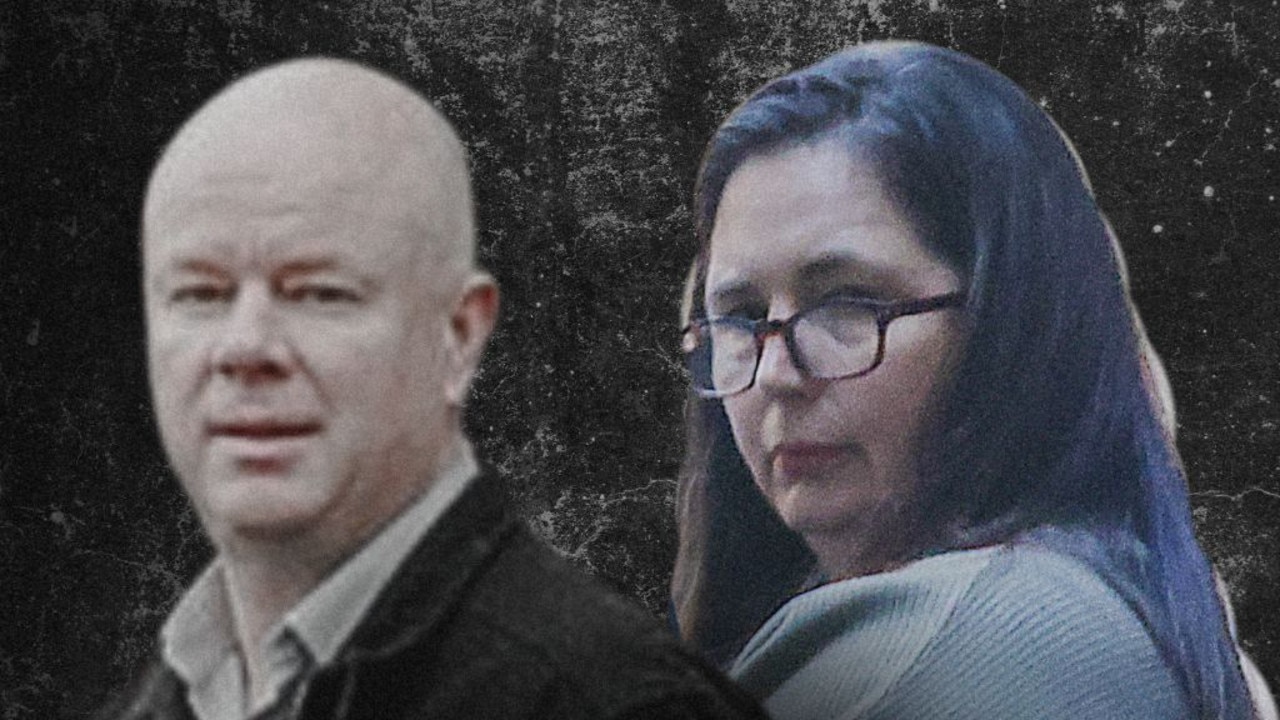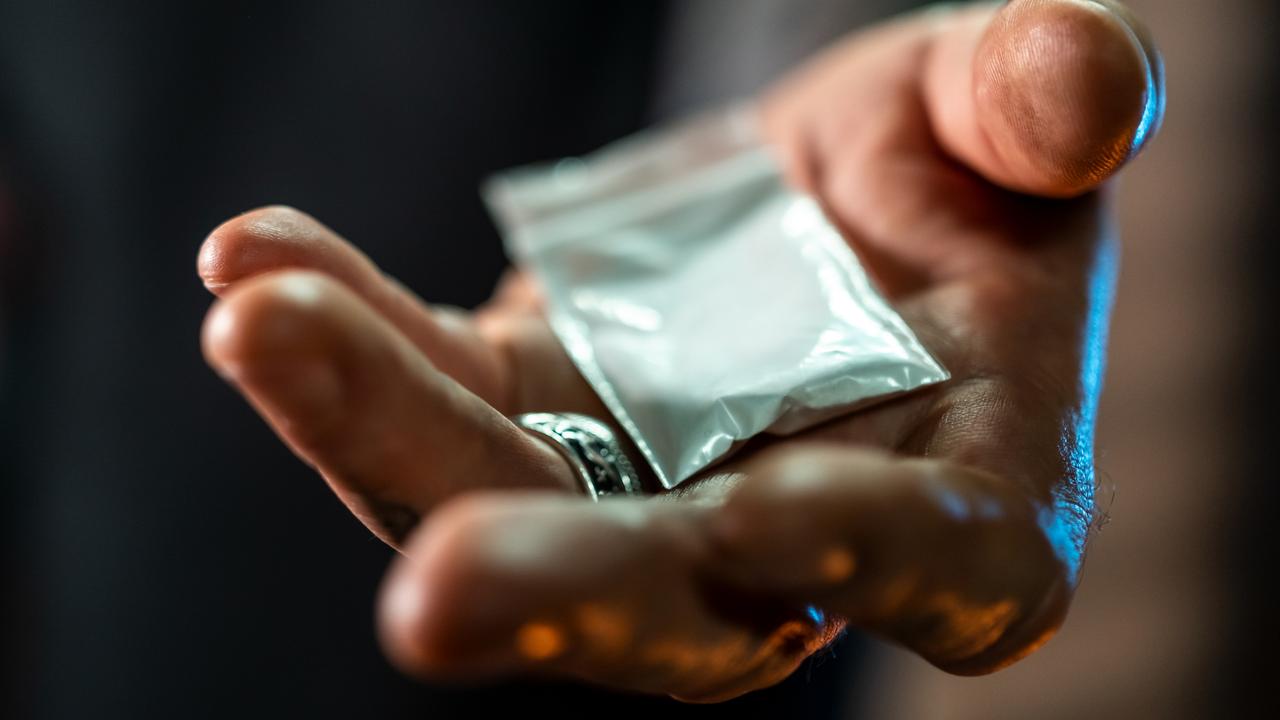Inside story: Shane Patton was up against it from the start — and it never got any easier
Shane Patton took charge of the police force in the midst of Victoria’s chaotic response to Covid, and things never got any easier for him. This is how it turned bad for our top cop.
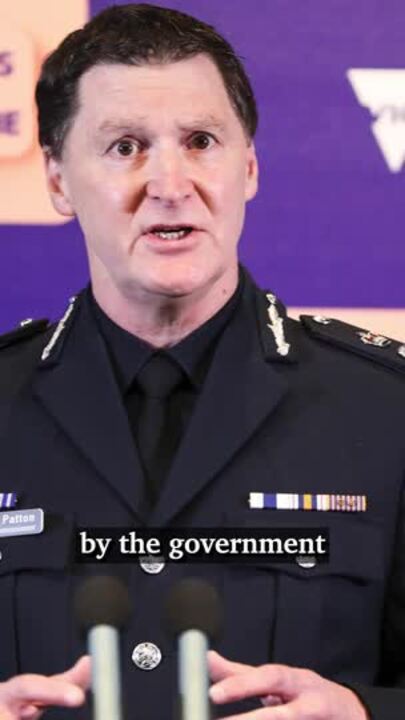
Police & Courts
Don't miss out on the headlines from Police & Courts. Followed categories will be added to My News.
Shane Patton was up against it from the start, and it never got any easier.
Covid had been in Victoria for a matter of months when he took over in June 2020, just as the full impact of the hotel quarantine debacle was being felt.
Then-Premier Daniel Andrews trumpeted him as a strong leader with four decades of experience, the best person to lead the force.
But his appointment to succeed Graham Ashton coincided with a plunge in public regard from which Victoria Police is yet to recover.
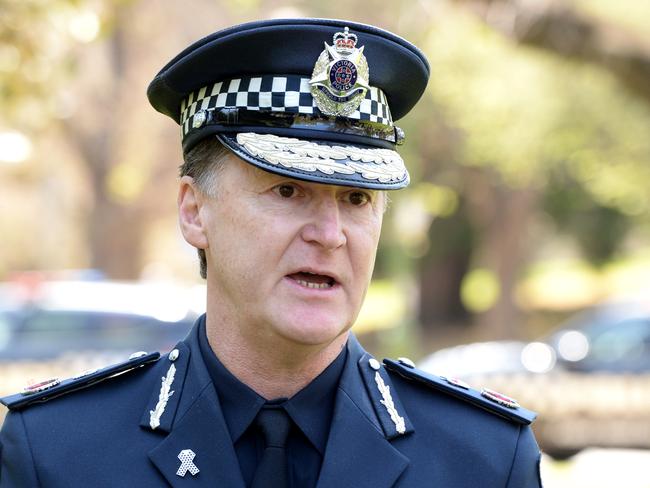
His officers – many of whom hated doing so – would become involved in pitched battles in the CBD and inner suburbs with anti-lockdown protesters.
There was widespread resentment – justifiable or not – that the Black Lives Matter protest had been allowed to proceed before Mr Patton started his term but officers were later getting physical with Covid demonstrators, at times using rubber bullets and OC spray.
Mr Patton would say those gatherings were banned and it was not for police to pick and choose what laws they enforced.
But behind closed doors, Mr Pattons’ supporters claim he was uncomfortable with the state government’s heavy handed approach to Covid enforcement.
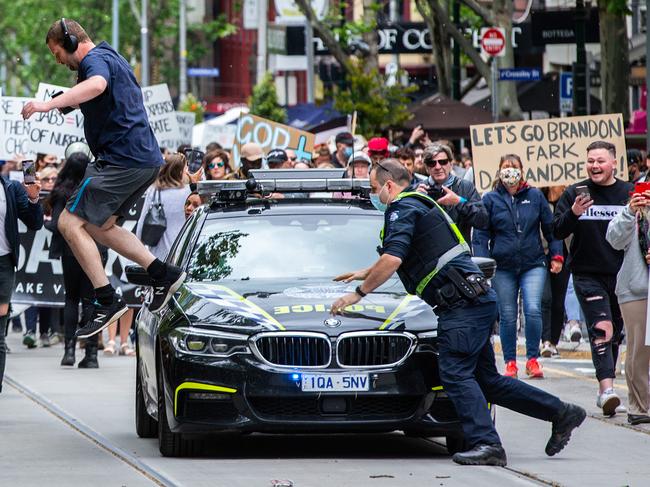
Insiders have repeatedly spoken of the state government and senior health officials putting extreme pressure on the force to come down hard.
“He would be very forceful with government,’’ an insider claims.
“Of any chief he stood up the most – he stood up to Daniel Andrews and he stood up to Brett Sutton during Covid.’’
The sense of overreach in the eyes of many was compounded when Zoe Buhler, a 28-year-old pregnant Ballarat mum, was handcuffed and arrested for using social media to organise a protest.
“It was brutal, but at the time a lot of members felt they were doing the right thing,” one senior officer said.
“There was, though, some decision making that was out of our hands that didn’t sit right, like when they had the Black Lives Matter protest.”
A County Court judge later ruled Victoria Police used “unlawful” and “unjustified violence” in a violent attack on anti-lockdown protesters.
Rather than keeping the peace, Judge Liz Gaynor ruled police were the “aggressors” and “employed unjustified violence” amid a public protest on 29 May, 2021 that left one man with a dislocated arm.
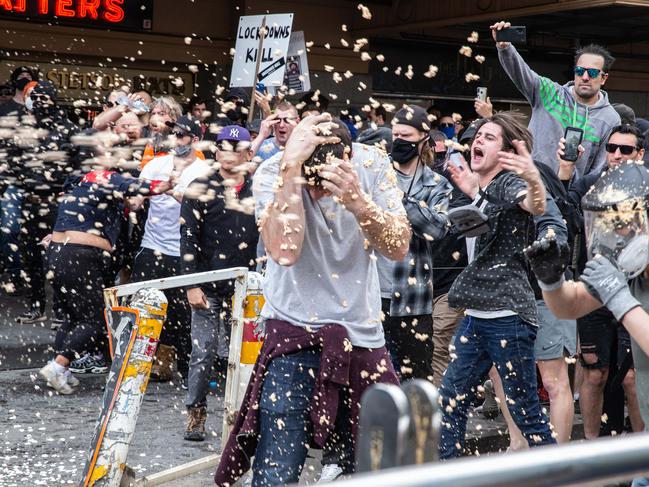
The judgment called into question police tactics and prompted calls for prosecutors to consider laying charges against the police involved.
As Victoria emerged from the Covid era, eyes turned to the crime rate, in particular youth offending which had become entrenched in Melbourne and remains a massive law and order issue.
The Sunday Herald Sun has been told Mr Patton fought hard against loosened bail laws and an increase in the age of criminal responsibility. The State Government has wanted the age to be raised to 14 but Mr Patton “wanted it to remain at 10’’.
Much of the fight over raising the age was conducted behind closed doors, a tactic Mr Patton is said to have preferred for his disagreements with state government policy.
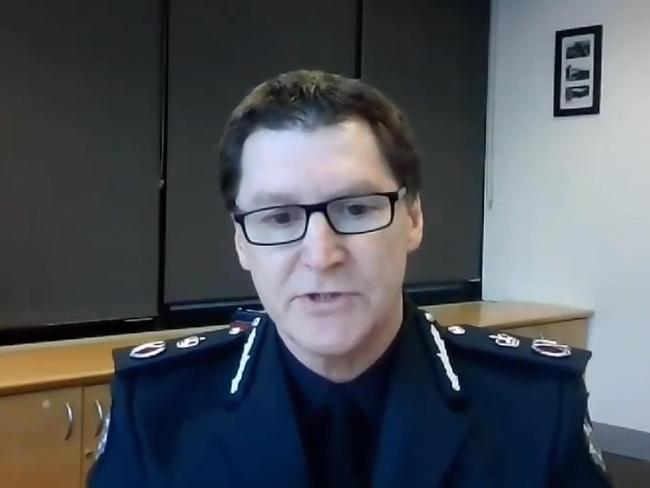
While he believed that was how he should conduct himself, the closed doors approach did nothing to shake off the perception of some elements that he was too close to the government.
By 2023, the tobacco conflict which would plague Victoria was up and running.
Multiple failures of public policy threw fuel on the illicit smokes trade, supercharging the wealth and power of gangsters like Kazem Hamad.
Between the tobacco warfare and youth crime, it appeared that almost every morning for two years people were turning on their radios to hear of a shop being torched or some wild rampage involving bailed teenagers in cars they had stolen from a suburban family.
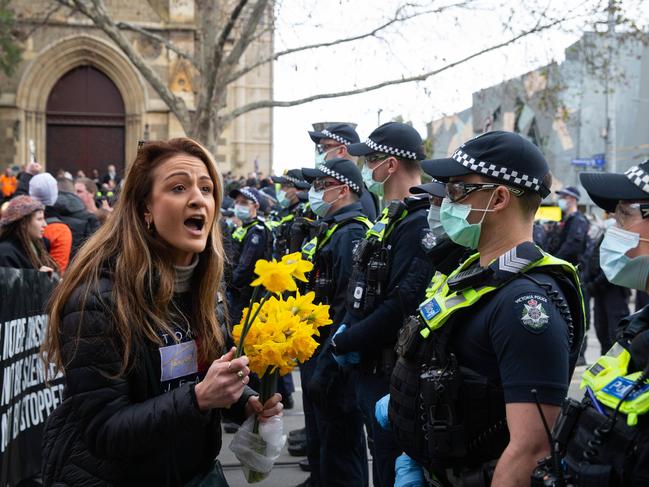
Whether it was fair or otherwise, this did nothing to allay any community perceptions that Mr Patton was not getting on top of the crime scourge.
While his members arrested the highest number of people last year since 2005, the crime rate continues to rise. Offending between those aged 14 to 17 rose 20 per cent while 100,000 family violence incidents were recorded for the first time ever.
Last year public satisfaction and confidence in Victoria Police plummeted to its lowest levels since records began.
Just 58 per cent of those surveyed said they were “satisfied with policing services”, a massive fall from 73.1 per cent from the year before.
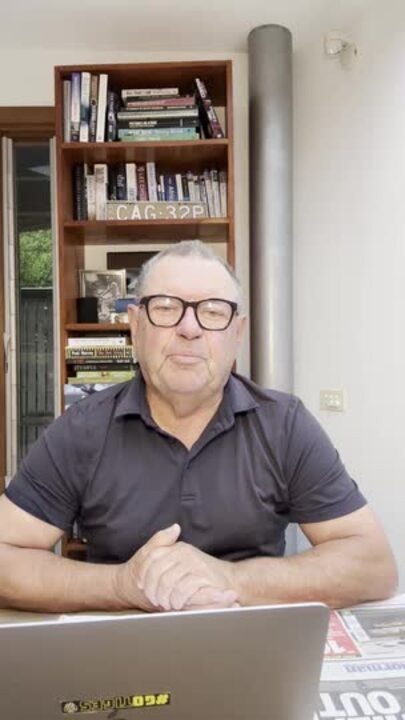
The same figure — just 58 per cent of Victorians — agreed they had “confidence in police”, a drop of 17 per cent from the 2022-23 high of 75 per cent.
At the same time, there were issues with personnel.
The force, as with its counterparts nationally, was struggling to recruit members and a position vacancy total which has exceeded 1000 became increasingly troubling.
A major study of the police force under Mr Patton’s watch found staffing levels had left 67 per cent feeling burnt out.
The research, by RMIT and Swinburne University, also showed 55 per cent of respondents said they were likely to explore other career opportunities.
Meanwhile as crime soared, the industrial drama which would ultimately prove so telling was starting to brew.
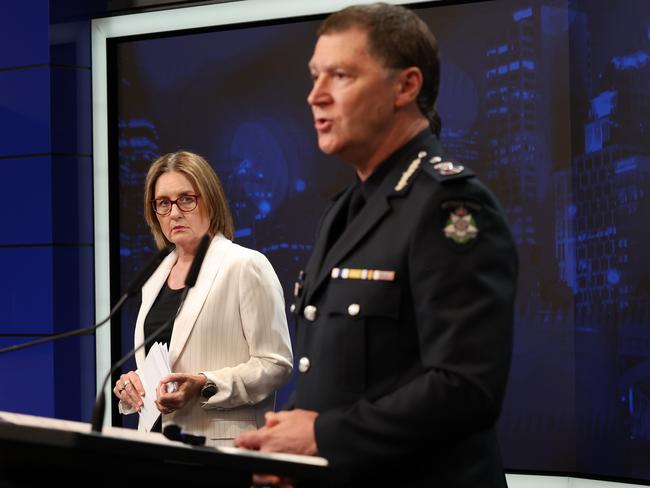
The 18-month long saga saw union boss Wayne Gatt vying for better working conditions and an increased pay packet for under-resourced members.
Members last year rejected a deal that would have introduced nine hour shifts and a 16 per cent pay rise over four years.
From there, ugly industrial action kicked off as members demanded a greater pay rise, but Mr Patton was hamstrung by the government’s strict wages policy.
“Our chief the wage thief” among other slogans were sprawled on hundreds of police vehicles across the state with furious members growing increasingly frustrated with the top cop.
Talks between the union, force command and state government appeared to continually reach a stalemate.
One union member said the beginning of the end for Mr Patton was when he applied to the Fair Work Commission three months ago to have negotiations declared intractable.
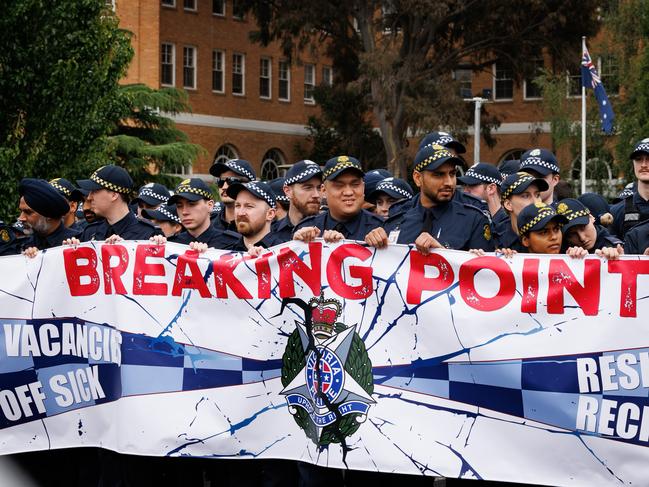
He said that it had long been held within the Police Association that “extreme measures” would be triggered if that ever happened.
“As soon as the FWC knocked back the CCP’s application in early January, a vote of no confidence being put to the members was highly likely,” the member said.
In the end, Friday’s jarringly strong no-confidence vote showed it wasn’t just the public which had lost faith.
“He lost touch with reality. There was too much focus on the nice to haves over the need to haves,” one senior officer said.
“No other police commissioner has seen so many police stations close or reduce their hours, or struggled with recruitment like he has.”
But there are others who supported Mr Patton and believed the State Government should have invested in a full-length mirror when it comes to law and order.
“It’s a shortsighted move. It’s indicative of a government that’s in crisis,” one former top investigator said.
“They have no answers. They’re just reactive.”
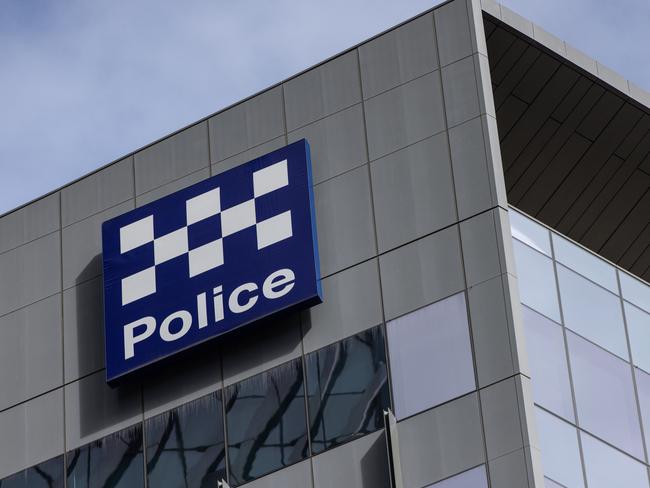
There are those that say the real reason he has headed for the exit was because he never really embraced or understood the highly political nature of the job, the need to serve government and “uphold the right’’, keeping the people of Victoria safe.
As the dust settles on his career, it may well be that Mr Patton returns to an anonymous life in the suburbs, a man who writer Patrick Carlyon said in V Weekend, “celebrates catching up with non-police friends, from chefs to property developers, with a beer or a red.’’
In that same piece in 2022 Mr Patton would admit to looking back with regret at those days of Covid policing saying “no one wants to be seen as just the person who’s got the big stick,”
“If I had the wisdom of hindsight (at the time) I’d be a much better chief commissioner and a much richer man as well,” he says.
A little over two years later, Mr Patton is an ex-chief commissioner, With the government facing a crime wave, Mr Patton’s strong desire not to play the game of his employers, and no real backers or profile to protect him, it was almost inevitable that it was always going to end like this. A good man, gone from a job that became too much.



